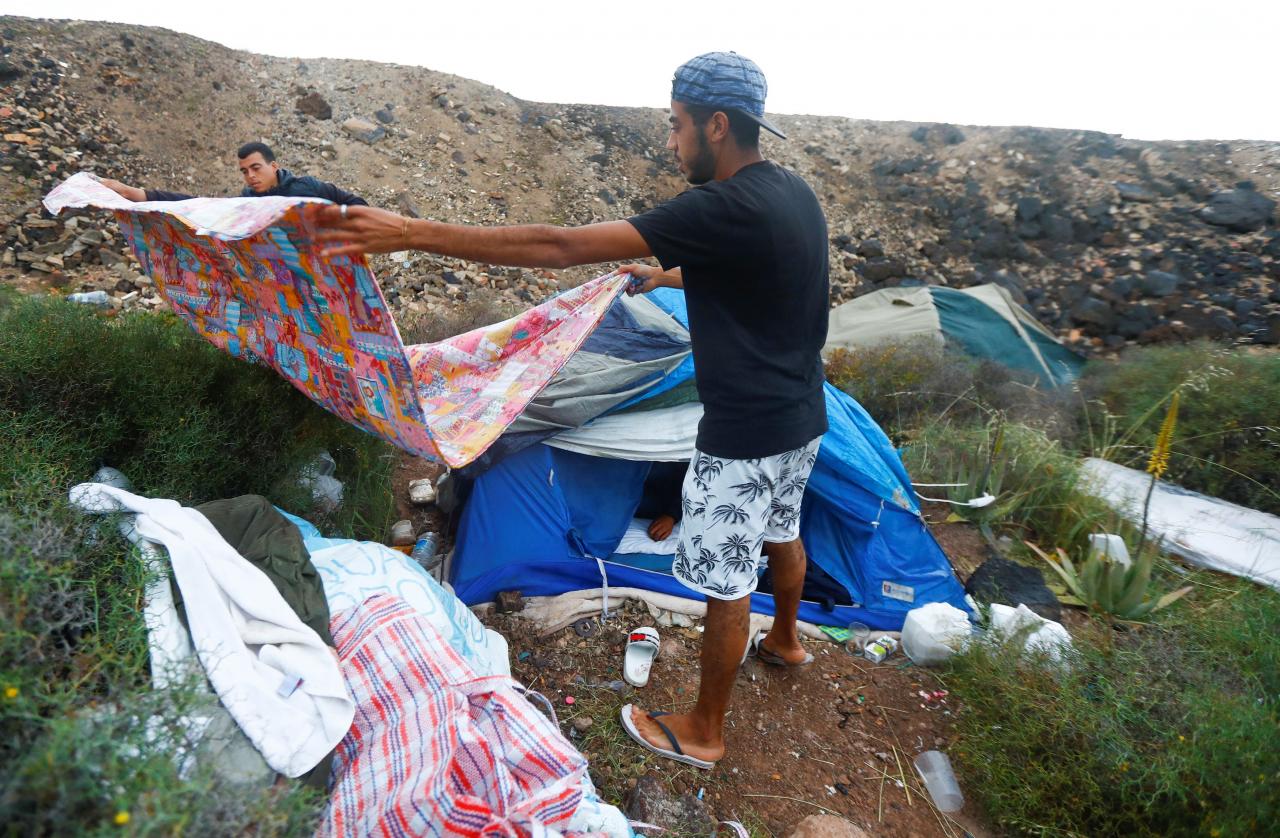More than 60 North African migrants are living in tents in the mountains of Spain's Gran Canaria island with no access to running water after leaving a Red Cross centre which they say crammed dozens of them into squalid conditions.
About 23,000 migrants made the dangerous Atlantic crossing to the Canary Islands last year, in a near ten-fold surge from 2019. Expecting a further influx, authorities began housing thousands in camps, drawing criticism from rights groups over inhumane conditions.
Perched on a windswept cliff side above the Confital coastline near the city of Las Palmas, the makeshift camp is exposed to the elements and gets freezing cold.
Every day the group walks 2 km (1 mile) to the San Pedro Church where a local aid organisation, Somos Red, hands out food and water.
One of the men, who did not give his name for fear of repercussions from the authorities, said 50 people were forced to share a tent at a converted military barracks while observing a coronavirus quarantine.
"We won't accept such conditions ... We're asking the European Union to do something because we are suffering here," he said, adding that his friends are cold and hungry.
Hiding his face behind a hood, another complained that people were stealing, drinking and smoking hashish in the Red Cross centre. "I'm a person, not an animal," he said.
The men say they were expelled from the centre. The Red Cross says they left of their own accord after objecting to being temporarily transferred to larger tents within the same site.
"We did not ask them to leave. We spoke with all the men involved one by one and encouraged them not to abandon the centre," a Red Cross spokesman said.
Asked about the allegations of drug use and petty crime and whether 50 people were housed in one tent, the spokesman said the facilities complied with all sanitary standards.
A government spokeswoman said the Canaries regional health department had signed off on the centres and coronavirus precautions were adhered to.
San Pedro Parish priest Jorge Hernandez said Somos Red did what it could to support the migrants but criticised the region's immigration policy as inadequate and improvised.
"They're people ... when you look at their faces, you see their expectations, their hopes, and their frustrations which must be immense ... The pain is very great."


No comments
To be able to write a comment, you have to be registered and logged in
Currently there are no comments.